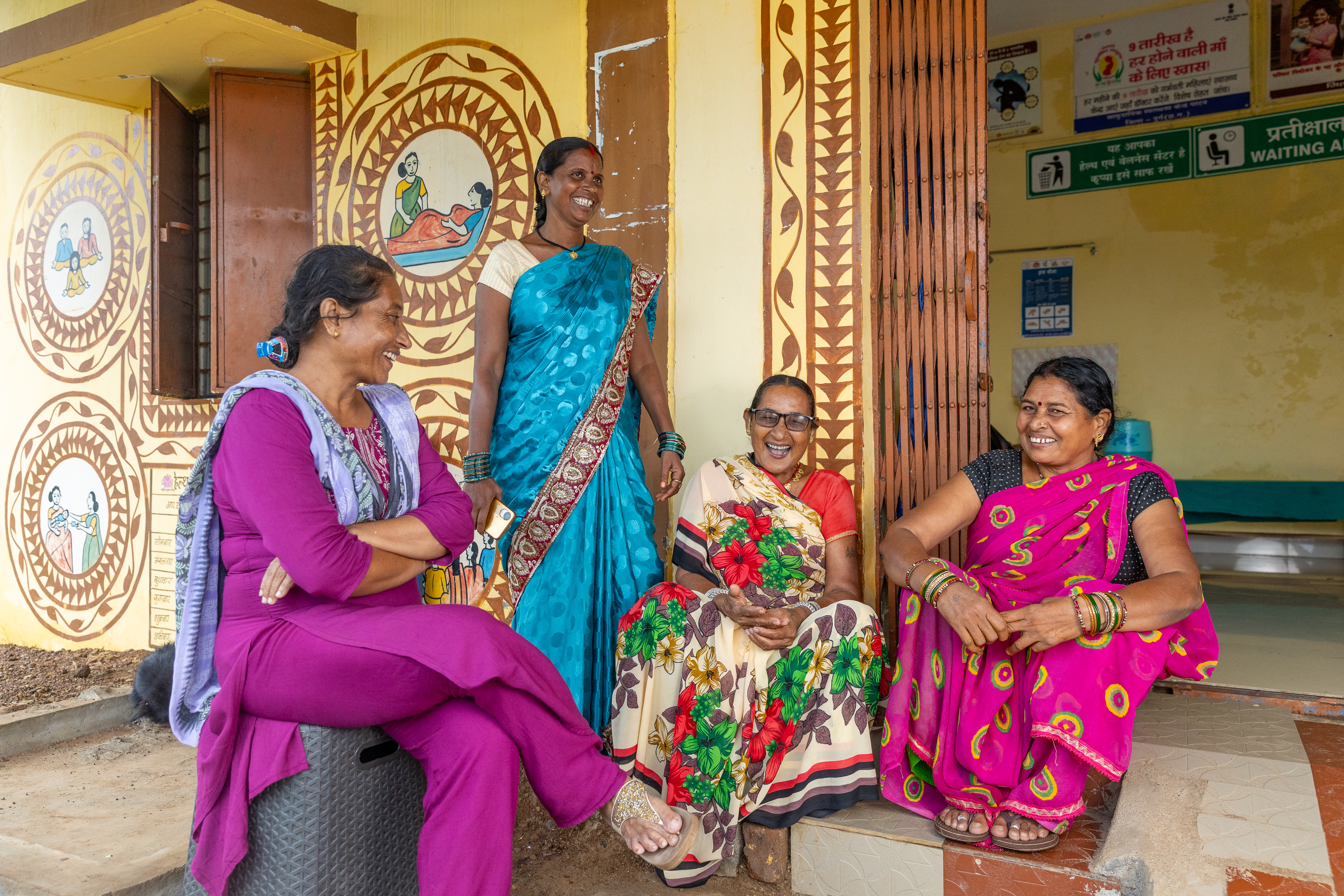HEALTH SYSTEM STRENGTHENING
Aagaaz
A project to improve leprosy health outcomes and wellbeing of communities in the Durg district of Chhattisgarh state in India.
Leprosy, often associated with poverty, can result in severe disabilities and social stigma if left untreated. India has seen considerable progress, with a marked decrease in leprosy cases and related disabilities over the past decade, achieving elimination status as a public health concern and reducing both the prevalence and incidence of the disease.
The distribution of leprosy is highly variable, with ten states, including Chhattisgarh, identified as high endemic, contributing to 80% of the country's cases. Chhattisgarh alone accounts for 7.34% of the national leprosy burden, which is disproportionately high compared to its 2.14% share of the population. Despite India's overall advancement, Chhattisgarh, Odisha, and Dadra & Nagar Haveli are yet to reach the elimination of leprosy. Among India's districts, 61 have a prevalence rate exceeding 1, with 12 located in Chhattisgarh, and out of 204 districts with a high G2D rate, 20 are in Chhattisgarh, underscoring the state's pivotal role in the eradication efforts for leprosy.

Swiss Emmaus Leprosy Relief Work India (SEI), supported by Fairmed Bern, has been addressing leprosy and other neglected tropical diseases (NTDs) in India. SEI provides specialised care for leprosy and supports community health initiatives to ensure equitable access to healthcare.
SEI has intensified leprosy control programmes in states with a high burden of the disease and transitioned from tertiary to primary healthcare services, focusing on community engagement, early detection, and prevention of disabilities.
Following discussions with stakeholders, including the Central Leprosy Division (CLD) and the World Health Organization (WHO), SEI initiated a leprosy project in the Durg district of Chhattisgarh. This region bears a significant leprosy burden and has not received interventions from other International Federation of Anti-Leprosy Associations (ILEP) members, rendering it an optimal location for SEI's concentrated efforts.
Rationale
India's National Health Mission (NHM) integrates leprosy services, demonstrating a strong political commitment to eradicating the disease. Effective partnerships at various levels, including the National Leprosy Eradication Programme (NLEP) and the Association of People Affected by Leprosy (APAL), are in place. However, challenges such as suboptimal contact tracing, insufficient staff training, and inadequate ulcer care, particularly for the elderly, remain.
Aagaaz targets the most neglected and vulnerable groups, those affected by leprosy and potentially other Neglected Tropical Diseases (NTDs), disabled individuals, tribals, migrants, women, and children in the Durg district of Chhattisgarh.
Project Proposal
Tenured for three years, i.e., 2023 - 2026 the Aagaaz project adopts human rights approach. The project ensures universal access to healthcare and upholds dignity for all, prioritising the marginalised. It incorporates disability and gender sensitivity to promote inclusive stakeholder participation.
Aagaaz aims to integrate and improve support systems. It enhances leprosy healthcare quality, raise community awareness with an emphasis on de-stigmatisation and inclusion, and broaden access to social security for those affected by leprosy, their families, and individuals with disabilities.
Goal
To improve the health and wellbeing of targeted marginalised communities in the Durg district through health system strengthening and community empowerment.
Objectives
- 1. To strengthen the existing public health care delivery system to deliver quality comprehensive basic health services with a focus on leprosy and to reduce health inequities for the targeted marginalised communities.
- 2. To facilitate community development to enable targeted marginalised communities for their health rights and responsibilities.
The project strengthens health systems comprehensively, supporting the needs of both the community and providers, to ensure equitable health services.
Project Partners
Project Aagaaz will collaborate with the government and various departments in Chhattisgarh's Durg district. Building on its national ties with the NLEP, and with SEI's National Program Manager serving as an ILEP consultant, it aims to establish a local network that includes RLTRI and the Steel Authority of India (SAIL). Working with ILEP agencies, WHO officers, NGOs, and associations, SEI will utilise TLM's hospitals in Jangir Champa and Mungeli for advanced leprosy care, complementing primary and secondary healthcare services.
Besides APAL, the Aagaaz project will also work in close coordination with organisations focused on disability, and women’s associations to ensure disability and gender inclusion at every step of project implementation.